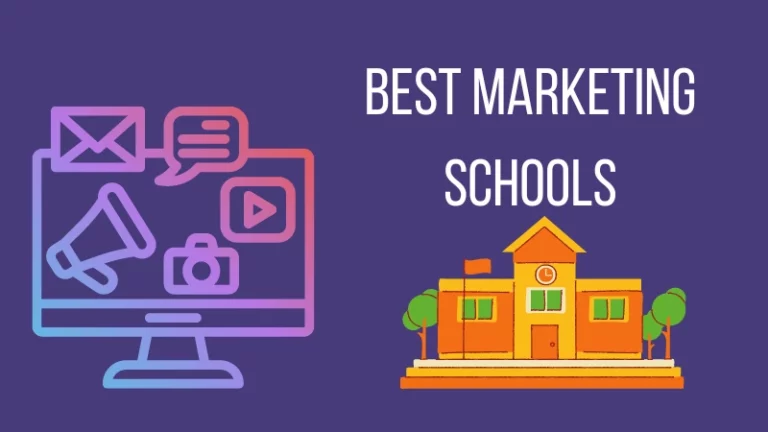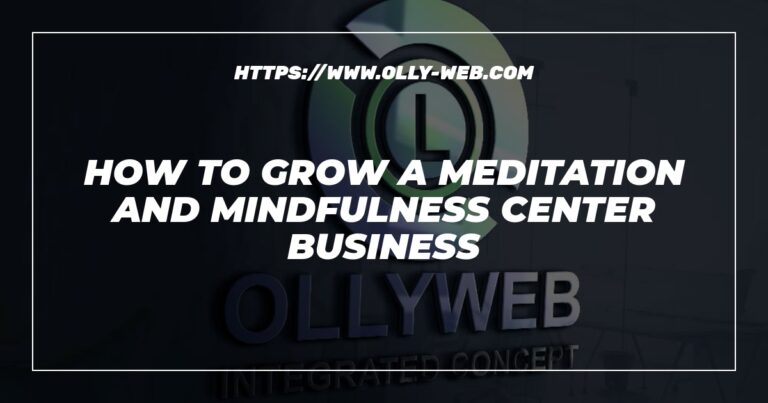How Digital Marketing Automation is Revolutionizing Insurance Agencies

Introduction: The Challenges Faced by Traditional Insurance Agencies in a Digital World
The traditional insurance industry is undergoing a seismic shift, driven by the rapid advancement of digital technologies. One of the most pronounced challenges faced by traditional insurance agencies is the escalating competition from digital-native companies. These modern entrants leverage cutting-edge technology to offer streamlined, user-friendly services that often exceed consumer expectations. Unlike their conventional counterparts, digital-native companies can often deliver cost-effective solutions at a faster pace, thereby capturing the attention and loyalty of a tech-savvy clientele.
The changing consumer expectations present another significant challenge. Today’s consumers demand faster, more personalized service. They expect instant quotes, mobile-friendly interfaces, and 24/7 access to their accounts. Traditional insurance agencies, accustomed to more prolonged underwriting processes and in-person consultations, often struggle to keep up with these demands. The inability to deliver quick and personalized interactions can result in consumer dissatisfaction and a dwindling customer base.
Maintaining customer loyalty has also become increasingly difficult in this digital era. With abundant choices at their fingertips, customers can easily switch to competitors offering better digital experiences or more appealing pricing models. The traditional methods of face-to-face relationship-building and long-term engagement are becoming less effective, as consumers prioritize convenience and speed over personal interaction.
These challenges underscore the pressing need for digital transformation in the insurance sector. Without adopting digital marketing automation and other innovative solutions, traditional insurance agencies risk obsolescence. By integrating these technologies, agencies can streamline their operations, meet evolving consumer demands, and maintain competitive parity with digital-native companies. This transformative journey is not merely beneficial; it is crucial for survival in an increasingly digital marketplace.
The Power of Marketing Automation
The ever-evolving landscape of digital marketing has seen insurance agencies embracing automation to enhance their marketing efforts. By leveraging marketing automation tools, agencies can optimize numerous routine tasks, thus enabling their teams to focus on more strategic activities. These tools not only streamline operations but also significantly amplify efficiency and accuracy.
Through sophisticated algorithms and advanced customer data analytics, marketing automation facilitates improved segmentation of customer bases. By categorizing clients according to various attributes, insurance companies can create more targeted and relevant marketing campaigns. This precise segmentation ensures that marketing strategies are more accurately aligned with customer needs, thereby fostering greater engagement and higher conversion rates.
Furthermore, insurance agencies benefit from enhanced customer engagement through automated, timely follow-ups and personalized communication. Marketing automation tools can send out customized emails and notifications based on individual customer behavior and preferences. This proactive approach not only reinforces customer loyalty but also preempts customer needs, such as service reminders or policy renewals.
Moreover, marketing automation empowers insurance agencies to deliver continuous and seamless customer service. By providing timely interaction and addressing customer queries efficiently, these tools help build a more robust relationship with clients. Automated platforms can track interactions and predict future customer requirements, facilitating a more personalized and satisfactory service experience.
In essence, digital marketing automation is not merely a tool for efficiency but a transformative approach that revolutionizes how insurance agencies operate. By enhancing targeting precision, streamlining processes, and personalizing customer engagement, these tools lead to significant improvements in overall campaign effectiveness and ultimately drive sales growth.
Agency Revolution’s Role in Marketing Automation
Agency Revolution stands out as a pivotal platform in the realm of digital marketing automation for insurance agencies. Its comprehensive suite of features is specially designed to address the unique needs of the insurance industry, ensuring these businesses remain competitive and relevant in an increasingly digital landscape.
One of the cornerstone features of Agency Revolution is its ability to automate email campaigns. Insurance agencies can now create, customize, and schedule emails to be sent to their clients with minimal manual intervention. This ensures consistent communication, which is vital for client retention and satisfaction. Whether it’s policy renewal reminders, newsletters, or personalized offers, automated email campaigns facilitate timely and relevant interactions with clients.
Another key feature is the integration with Customer Relationship Management (CRM) systems. By offering seamless CRM integration, Agency Revolution allows insurance agencies to maintain accurate and up-to-date client information, streamline their processes, and enhance customer service. CRM integration helps in identifying potential leads, tracking client interactions, and managing follow-ups, thus fostering stronger client relationships.
Social media management is another area where Agency Revolution excels. The platform empowers insurance agencies to manage their social media presence efficiently. By automating posts, monitoring social media feeds, and engaging with followers, agencies can enhance their online visibility, attract new clients, and build a robust online community. This not only saves time but also ensures consistent and strategic brand messaging across various social media platforms.
Lead nurturing is equally significant in the offerings of Agency Revolution. Through automated workflows and segmentation, insurance agencies can ensure that each lead receives tailored content based on their specific needs and stage in the buying journey. This personalized approach increases the likelihood of converting leads into loyal clients, thereby driving business growth.
Testimonials from industry experts highlight the profound impact of Agency Revolution on insurance agencies. According to John Smith, a seasoned insurance consultant, “Agency Revolution has enabled us to maintain a competitive edge by automating repetitive tasks. This has allowed us to focus more on strategy and client relationships.” Such expert commentary underscores the value that digital marketing automation, particularly through platforms like Agency Revolution, brings to the insurance sector.
Streamlining Customer Communication for Better Retention
One of the pivotal advantages of digital marketing automation for insurance agencies is the enhancement of customer communication. Automated marketing tools have transformed how agencies handle customer interactions, ensuring a seamless and efficient workflow. By leveraging marketing automation, insurance agencies can efficiently manage customer inquiries, providing instant responses that significantly improve client satisfaction.
Automated systems enable agencies to address customer questions in real-time, alleviating common frustrations associated with delayed responses. This instant response capability not only caters to immediate customer needs but also fosters a sense of reliability and trust in the agency's service. Furthermore, these tools can schedule regular follow-ups based on predefined criteria, ensuring continuous engagement without the manual hassle.
To illustrate, an automated system can be programmed to send policy renewal reminders or personalized messages marking important milestones such as policy anniversaries. These personalized communications are critical in building long-term relationships with clients. Maintaining a consistent and tailored communication flow keeps customers informed and appreciated, which substantially reduces churn rates.
In addition to regular follow-ups, marketing automation platforms can segment customers based on various factors like policy type, purchase history, and engagement levels. Tailoring messages to specific customer segments ensures relevance, thereby increasing the likelihood of positive interactions and fostering a loyal customer base. This segmentation capability is fundamental in delivering targeted content that resonates with individual customer profiles.
Moreover, the analytic capabilities of these tools provide insights into customer behavior and preferences, allowing agencies to refine their communication strategies continually. By understanding which messages resonate most with clients, agencies can enhance their engagement tactics, leading to improved customer retention. Therefore, leveraging digital marketing automation in insurance agencies not only optimizes customer communication but also contributes to a more personalized and effective retention strategy.
Enhancing Data-Driven Decision Making
In the current landscape, how digital marketing automation is revolutionizing insurance agencies is a topic of significant importance. The integration of marketing automation tools has become a cornerstone for fostering data-driven decision-making, a crucial element for staying competitive. By leveraging these tools, insurance agencies can collect and analyze vast amounts of data from a variety of touchpoints, including customer interactions, social media engagements, and email marketing campaigns.
These marketing automation platforms are equipped with sophisticated analytics capabilities that transform raw data into actionable insights. Such insights provide a clear picture of customer behavior, preferences, and overall engagement patterns. For instance, by tracking the performance of different marketing campaigns, insurance agencies can identify which strategies are yielding the best returns and optimize their efforts accordingly. Moreover, understanding market trends through collected data helps in predicting future demands and adjusting business strategies preemptively.
One of the primary benefits of how digital marketing automation is revolutionizing insurance agencies lies in its ability to enhance personalization. By analyzing customer data, insurance agencies can segment their audience more effectively and tailor their messages to meet individual needs. This not only improves the customer experience but also increases the likelihood of retention and loyalty.
Furthermore, data-driven insights enable agencies to identify new market opportunities. For instance, if the analytics indicate an underserved demographic showing a growing interest in certain types of insurance products, agencies can develop targeted campaigns to tap into this new segment. This proactive approach positions agencies to exploit emerging trends and maintain a competitive edge.
In essence, marketing automation tools facilitate a more strategic approach to decision-making. They allow insurance agencies to move beyond gut feelings and instead rely on concrete, data-backed insights. This shift towards data-driven strategies not only optimizes marketing efforts but also contributes to informed business decisions, ultimately driving growth and profitability for insurance agencies in a highly competitive market.
Boosting Efficiency and Productivity
In the realm of insurance agencies, the implementation of digital marketing automation is a game-changer, significantly enhancing both efficiency and productivity. By automating repetitive and time-consuming tasks, insurance agencies can pivot their focus toward more strategic, high-value activities. This shift is not merely beneficial but transformative for marketing and sales teams.
Tasks like lead scoring, email marketing, social media posts, and reporting are prime examples of processes that can be automated to great effect. Lead scoring, for instance, traditionally involves manual assessment of potential clients based on their activities and engagement levels. Automating this process uses algorithms to automatically evaluate and rank leads, ensuring sales teams only pursue the most promising prospects. This not only saves time but also increases the accuracy and effectiveness of lead management strategies.
Email marketing, another essential task, is markedly more efficient when automated. Automation platforms can segment audiences, send personalized messages, and track engagement without human intervention. This ensures timely follow-ups and nurtures potential clients through customized content, improving the overall customer journey and increasing the likelihood of conversions.
Social media management is another area where automation delivers substantial benefits. Scheduling tools can automatically post content at optimal times, engage with followers, and even respond to queries using AI-driven chatbots. This allows marketing teams to maintain a consistent online presence without dedicating significant manual effort.
Additionally, automated reporting tools compile and analyze data from various sources, presenting it in easy-to-understand formats. This reduces the time spent on manual data entry and report generation, empowering teams to make data-driven decisions swiftly.
The contrast between manual and automated processes in these areas highlights the profound impact of digital marketing automation. While manual methods require significant time and labor, automation streamlines workflows, reduces errors, and frees up valuable resources. This transformation enables insurance agencies to operate more efficiently, ultimately driving growth and better serving their clients.
Success Stories: Real-World Examples
Insurance agencies across the globe are witnessing unparalleled advancements due to the integration of digital marketing automation. These real-world success stories highlight how this revolution is transforming their operations and driving substantial business growth.
One such example is ‘SafeHold Insurance', a mid-sized agency struggling with inefficient lead management and customer engagement. To overcome these challenges, they adopted a comprehensive marketing automation platform that allowed for efficient email marketing, social media management, and customer journey mapping. The results were remarkable: a 40% increase in lead conversions and a 30% improvement in customer retention rates within just six months, significantly enhancing their overall revenue.
Another success story is ‘Guardian Insurance', a company grappling with high churn rates and inconsistent customer communication. By implementing an intelligent CRM system combined with automation tools, they could streamline their communication processes, ensuring timely and personalized interactions with clients. This strategic change led to a 50% reduction in churn rates and a substantial increase in customer satisfaction scores, establishing them as a client-centric business in the industry.
‘Pioneer Insurance' faced the challenge of scaling their marketing efforts without proportionally increasing their team size. They turned to digital marketing automation to optimize their content creation and distribution strategies. Through automated social media posts, email campaigns, and data analytics, they achieved a stunning 45% growth in website traffic and doubled their lead generation numbers within a year. This technological shift not only improved their market presence but also solidified their position as an innovative leader in the insurance sector.
These success stories are a testament to how digital marketing automation is revolutionizing insurance agencies. By leveraging automation tools, these agencies have not only enhanced operational efficiency but also achieved measurable outcomes that drove their business forward.
Conclusion: Embracing Marketing Automation for Transformation
The landscape of insurance is experiencing a significant shift, thanks to the advent of digital marketing automation. From enhancing customer experiences to driving operational efficiency, the potential for transformation within insurance agencies is unprecedented. By streamlining processes through automated solutions, agencies can not only overcome current challenges but also position themselves competitively in an ever-evolving marketplace.
Throughout this blog post, we've delved into various facets of how digital marketing automation is revolutionizing insurance agencies. Automated customer relationship management allows for personalized and timely engagement, fostering stronger client relationships. Lead generation and nurturing are optimized through sophisticated algorithms, ensuring that the right message reaches the right audience at the right time. Moreover, the analytical capabilities of these tools provide valuable insights, helping agencies to make data-driven decisions and refine their strategies continuously.
Given the breadth and impact of these advancements, it is imperative for insurance professionals to explore the diverse range of marketing automation tools available. By leveraging such technologies, agencies can significantly enhance their marketing effectiveness, improve customer satisfaction, and ultimately drive business growth. The integration of automation into daily operations not only simplifies routine tasks but also frees up valuable time for strategic planning and innovation.
For those keen on adopting marketing automation, the next steps are clear: conduct thorough research on the best tools suited to your agency's needs, invest in training for your team, and start small to test and refine your approach. Numerous resources and platforms offer guides, case studies, and tutorials to help you embark on this journey with confidence. As we move forward, embracing marketing automation is no longer an option but a necessity for those looking to thrive in the competitive realm of insurance.






